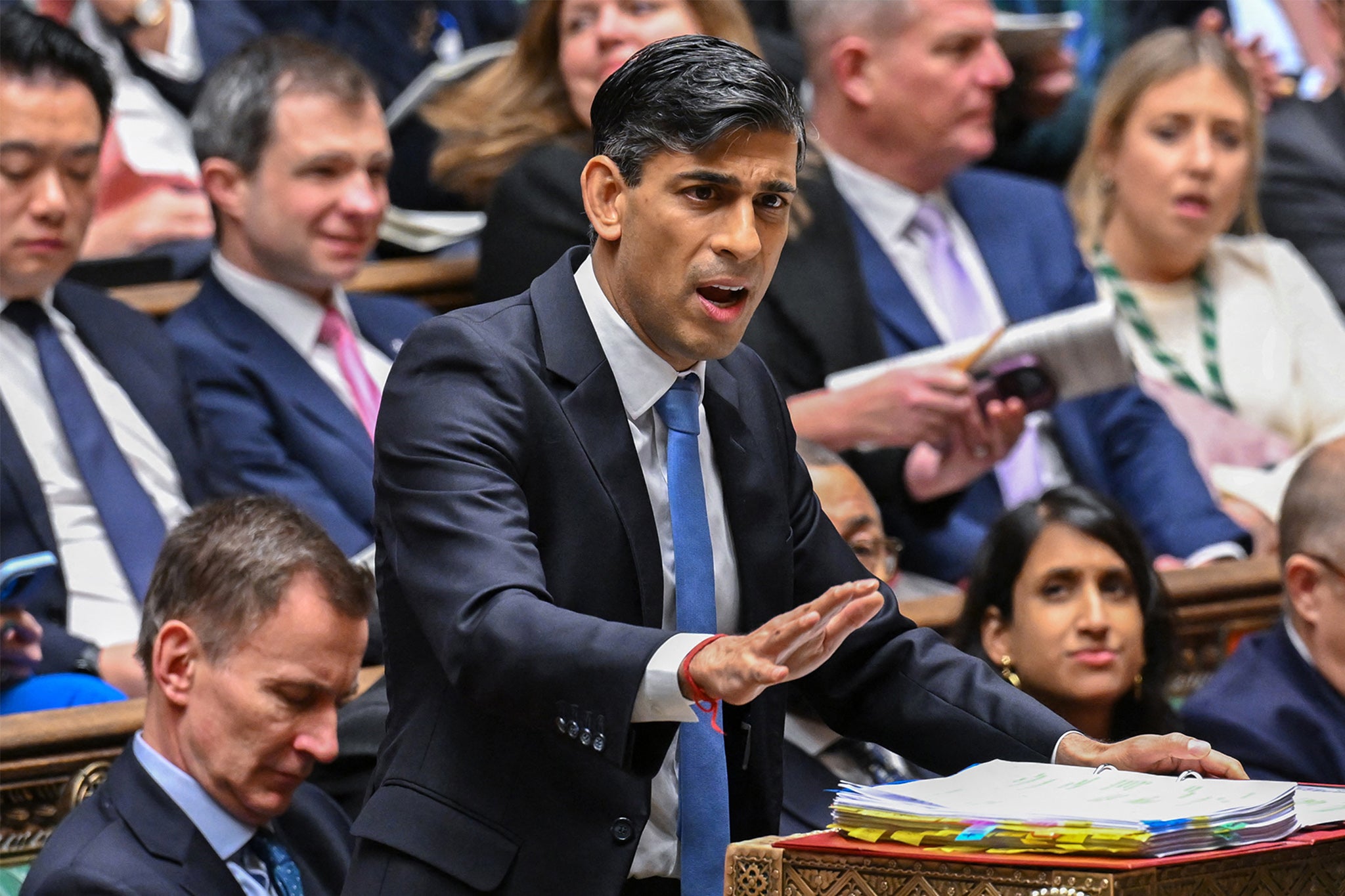Does the government need parliament’s approval to take military action?
Tony Blair secured approval from MPs for his Iraq invasion, but do prime ministers need to seek backing from parliament at all? Sean O’Grady looks at the precedents...

Rishi Sunak briefed his cabinet on the strikes against Houthis in Yemen, but the House of Commons has yet to discuss the matter
Britain’s decision to take military action against Houthi forces in Yemen is one that is fraught with geopolitical, moral and legal arguments. Perhaps the most immediate is whether the government is required to seek prior parliamentary approval for such action. After all, the lives of British service personnel – and possibly, ultimately, of British civilians – are at stake.
Rishi Sunak called a cabinet meeting, and he also briefed the Labour leader, Keir Starmer; the shadow defence secretary, John Healey; and the House of Commons speaker, Lindsay Hoyle – but that was the limit of his consultations. (Presumably Sunak also briefed the King.) Other opposition figures were excluded from the process. The Liberal Democrats, Scottish National Party and Plaid Cymru are demanding that parliament – on recess until Monday – be recalled immediately, and Hoyle indicated he would assist with that. No 10, however, says there will be no retrospective vote on the airstrikes. The question of the role of the Commons in approving acts of war, therefore, remains live.
Can Sunak take Britain to war without a parliamentary vote?
Subscribe to Independent Premium to bookmark this article
Want to bookmark your favourite articles and stories to read or reference later? Start your Independent Premium subscription today.
Join our commenting forum
Join thought-provoking conversations, follow other Independent readers and see their replies